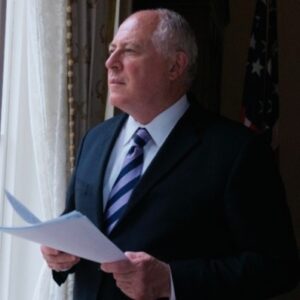“Biography of Anthony Albanese”

Introduction:
Anthony Albanese is a promenent personalities who dont know him in australian political arena.who became the prime minister of Australia and shaped the country to progress.
So if you are searching the Biography of Anthony Albanese then you came on the right place it is given below just read it.

Early Life And Family Background:
Anthony Albanese was Born on 2 March1963 in Sydney, Australia. he grew up and Developed his strong sense of community and social justice.
Her mother Maryanne Ellery who shaped and support to go ahed for future.
His mother like a political influencer in his life, worked as a political activist for the Australian Labor Party (ALP) and laying the foundation for his future involvement in politics.
Academic Qualification:
Albanese early academic years laid the groundwork for a future characterized by public service and political leadership.
He join the University of Sydney where he got Bachelor of Economics degree.
Personal Life:
Anthony Albanese is married to Carmel Tebbutt who is also a notable political figure in australia. and she became also Deputy Premier of New South Wales and her partnership with Albanese reflects a shared commitment to public service and community welfare.
Together they form a political power couple that embodies dedication to the principles they advocate. They have a son who’s name is Nathan.
Read Also:https://theboiworld.com/bill-blair-2024-public-leadership/
Career:
Anthony Albanese political career began during his university time which reflects a trajectory marked by a fusion of grassroots activism, union involvement, and a gradual ascent within the ranks of the Australian Labor Party (ALP).
Student Activism (1980s):
Albanese’s political career started during his student time at the University of Sydney. where he actively engaged in student activism. This period laid the groundwork for his commitment to progressive ideals, providing an early indication of his inclination towards social justice causes.
Entry into Politics (1980s-1990s):
Inspired by his mother’s involvement in the ALP Anthony Albanese officially entered the political ground In 1985.
Parliamentary Journey (1996):
Albanese’s elected in 1996 as the Member for Grayndler in the Australian House of Representatives and won.
Shadow Ministerial Roles (2001 Onwards):
He assumed various shadow ministerial roles, including Shadow Minister for Employment Services Training and Science (2001-2006) and later as the Shadow Minister for Infrastructure and Water (2006-2007). These positions showcased his expertise in crucial policy areas and his growing influence within the party.
Read Also:https://theboiworld.com/sir-edmund-barton-australias-first-prime-minister/
Deputy Prime Minister (2013-2019):
He served as the Deputy Prime Minister of Australia from 2013 to 2019 under Prime Minister Julia Gillard.
Prime Ministership:
And finally he became Honorable 31st Australian Prime Minister on 23 May 2022 previously He served as Deputy Prime Minister.
Work Done As A Prime Minister:
Working as a Prime Minister is a demanding and crucial role that involves serving the nation and its citizens. Here is a generalized perspective on the responsibilities and goals that a Prime Minister might focus on to work for the nation’s well-being:
Leadership and Governance:
Provide strong and effective leadership to the country.
Oversee the functioning of the government and its various departments.
Policy Formulation and Implementation:
Develop and implement policies that address the nation’s economic, social, and environmental challenges.
Work towards the well-being and prosperity of citizens.
Economic Management:
Foster economic growth and stability through sound fiscal and monetary policies.
Create an environment conducive to job creation and entrepreneurship.
National Security:
Ensure the safety and security of the nation and its citizens.
Develop and implement strategies to address domestic and international security concerns.
Social Welfare and Inclusivity:
Prioritize social welfare programs to address issues such as healthcare, education, and poverty and Promote inclusivity and equal opportunities for all citizens.
Environmental Sustainability:
Implement policies to address environmental challenges and promote sustainable development. Participate in international efforts to combat climate change.
Crisis Management:
Effectively handle crises, be they natural disasters, economic downturns, or public health emergencies.
Communication and Transparency:
Communicate government policies and decisions transparently to the public. Foster a culture of openness and accountability.
Unity and Social Cohesion:
Promote national unity and social cohesion.
Address issues related to diversity, inclusion, and social harmony.
Innovation and Technology:
Encourage innovation and technological advancements. Invest in research and development to keep the nation competitive globally.
Infrastructure Development:
He Invented in critical infrastructure projects to support economic development to Improve transportation, communication, and energy systems.
A Prime Minister’s role is complex and multifaceted, requiring a deep understanding of both domestic and international issues.
Net Worth:
As per my knowledge Mr Anthony Albanese’s Net worth up to 15 million Australian dollars in 2022 But it may increase or decrease also.
so friends if this article was excellent then share it to your friends and if any mistake done then you can suggest me by comment.
And thanks for giving a lot of time on this site please visit again.
Author: Shalik Khan







